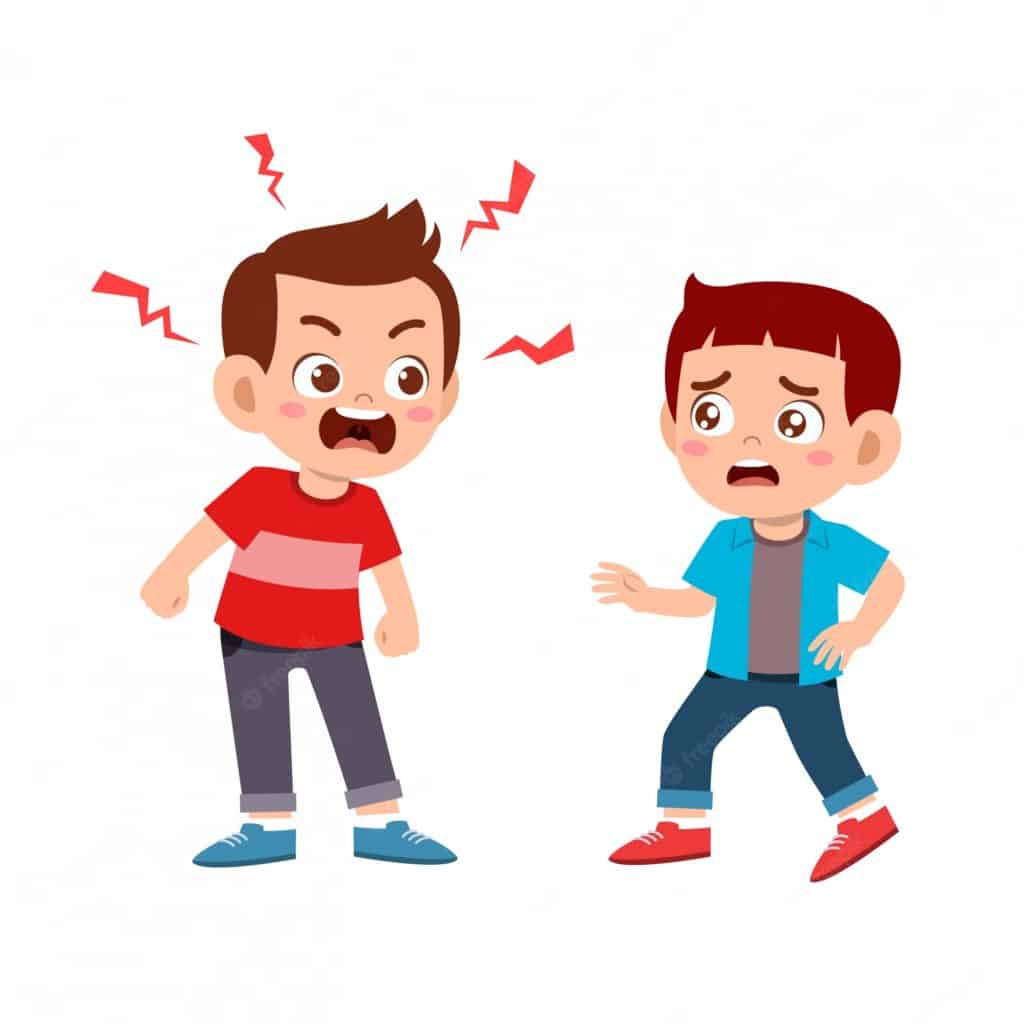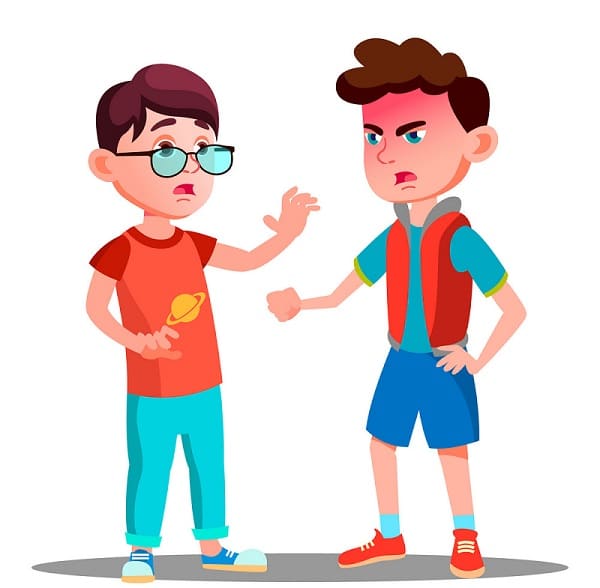When I was twenty-two years old, I wanted two things: 1. To be understood. 2. For people to think I was good at my job....Read more
Kids can exhibit cruelty for diverse motives as they develop emotionally and socially. Some factors that contribute to their behavior consist of the following. Children won’t completely understand the consequences of their movements and how they affect others. They may not have advanced enough empathy to remember the feelings of those they’re being cruel to.
Kids regularly mimic behaviors they study in others, along with dad and mom, siblings, or peers. If they witness cruelty being tolerated or rewarded, they may reflect it.

They are seeking a Peer. Some youngsters might also engage in cruel conduct to fit in with a specific institution or benefit from their peers’ approval.
Power and Control. Cruelty can be a method for a few kids to claim dominance or manipulate others, specifically if they feel insecure or powerless in other elements of their lives.
Limited Problem-Solving Skills. Kids might be into cruel behavior when faced with conflicts or demanding situations they do not know how to cope with correctly.
Emotional Expression. Cruelty can sometimes express anger, frustration, or jealousy, as youngsters may not have evolved more healthy methods to manipulate their emotions.
Adults must shove kids, train empathy, sell superb conduct, and cope with any underlying issues to help them increase healthy social and emotional competencies.
Why are kids so cruel?
Kids can be cruel for several motives:
- Excitement and Playfulness. Children are naturally exuberant, and their enthusiasm for games and activities often translates into loud voices and energetic conduct.
- Limited Awareness of Volume. Young kids will only partially grasp the idea of quantity management, so they may accidentally talk or shout without knowing it.
- Attention-Seeking. Some kids might use loudness to benefit attention or express their wishes once they experience something unheard or unnoticed.
- They are imitating Others. Kids frequently imitate the conduct of these rounds. They, and if they see adults or peers being loud, will comply with the suit.
- Emotional Expression. When youngsters are excited, upset, or happy, they’ll use increased volume to express their emotions.
- Developmental Stage. As youngsters grow and discover the world, they constantly study and experiment with their voices, which could bring about varying volume stages.
Remember, loudness is an everyday part of infant development, and it’s vital to. Offer to steer and assist them in understanding appropriate quantity tiers in exceptional settings. Encouraging lively listening and coaching them about quiet instances can also be helpful.
Why are kids so cute?
Kids are frequently perceived as cute due to a combination of biological, evolutionary, and social factors:
- Baby Features. Children generally have large eyes, rounder faces, and softer functions, which trigger nurturing instincts in adults. These developments often relate to vulnerability and evoke feelings of care and safety.
- Innocence and Helplessness. Kids’ innocence and dependence on adults for care and support can elicit emotions of affection and a preference to care for them.
- Positive Behaviors. Children’s playful, curious, and unfiltered behaviors can be endearing and convey pleasure to the ones around them.
- Biological Bonding. Parents and caregivers naturally shape sturdy bonds with their children, leading them to perceive their kids as lovely.
- Social Reinforcement. Society regularly places a high fee on cuteness, mainly for positive social Reinforcement, while people interact with lovely children.
- Evolutionary Significance. Evolution may additionally have favored the survival of offspring who evoked caretaking behaviors in adults, promoting the continuation of the species.
So, the belief of children as lovely is a complex interplay of organic, psychological, and social elements, mainly to a herbal appeal and effective emotional response from adults.
Why are kids so dumb?
It is not accurate or fair to label youngsters as “dumb.” Children are still in the method of studying and developing their cognitive abilities. And their intelligence and expertise in the sector are constantly evolving. Calling them “dumb” may be dangerous and negatively affect their vanity and self-assurance.
Various factors inspire children’s cognitive improvement:
- Brain Development. The human mind undergoes vast increase and maturation for the duration of youth. Children’s cognitive abilities, along with trouble-fixing, vital thinking, and reminiscence, increase as they age.
- Learning Process. Children are constantly soaking up records from their surroundings and reviews. Their exposure to various stimuli and mastering opportunities shapes their know-how and information.
- They limited Life Experience. Compared to adults, youngsters have restricted life experiences, which could lead to gaps in knowledge. So, this is a natural part of their improvement.
- Individual Differences. Every child is specific and learns at their pace. Some might also excel in certain areas even as needing more excellent aid in others.
- Educational Environment. The fine of education and assistance they obtain can significantly influence an infant’s highbrow boom.
- Emotional and Social Development. Emotional and social factors also influence a baby’s capacity to study and make decisions.
Instead of using terrible labels, it’s far more important to recognize and admire each child’s ability and offer them a nurturing and supportive environment to foster their increase and get to know them. Encouragement, patience, and high-quality Reinforcement are crucial for assisting youngsters to attain their full ability.
Why are so many kids disrespectful?
There can be various motives why some children show disrespectful conduct:
- Role Models. Children regularly learn behaviors from the adults around them. If they witness disrespectful conduct from dad and mom, caregivers, or other influential figures, they’ll imitate it.
- Peer Influence. The enterprise children maintain can also affect their behavior. If they may be surrounded by peers who display disrespectful attitudes, they may adopt a behavior similar to healthy.
- Lack of Boundaries. Inconsistent or unclear obstacles set by parents or caregivers can lead to a lack of understanding of respectful behavior.
- Attention-Seeking. Some children might also act disrespectfully to benefit attention or take a look at limits, mainly if they need to be noted or understood.
- Emotional Expression. Disrespect may be a way for kids to express frustration, anger, or feelings they’ll now not recognize how to communicate efficiently.
- Social Media and Media Influence. Exposure to specific media, which includes online platforms, can impact a baby’s perception of desirable behavior.
- Developmental Stage. Children continuously study appropriate social interactions and might make errors as they grow and broaden.
Addressing disrespectful behavior includes consistent and affected personal steerage from mother and father, caregivers, and educators. Encouraging empathy, setting clear obstacles, and modeling respectful conduct are important steps in assisting children to change into more respectful people.
Why are some children nasty?
Some children may additionally show off nasty behavior for numerous motives:
- Frustration or Anger. Children might also succumb to nasty conduct once they sense frustration, indignant, or upset, as they may not have completely advanced coping mechanisms for managing their feelings.
- Modeling Behavior. If kids look at nasty or competitive conduct from adults or peers, they will imitate it to deal with conflicts or assert themselves.
- They are seeking Attention. Nasty behavior may be a way for some youngsters to gain attention, even though it’s far bad interest, mainly if they experience being left out or ignored.
- Lack of Empathy. Children who war with empathy may also find it difficult to apprehend how their actions affect others, leading to nasty conduct without considering the outcomes.
- Social and Environmental Factors. Negative effects in an infant’s social environment, including bullying or exposure to harmful media, can contribute to nasty conduct.
- Self-Esteem Issues. Children with low vanity may engage in nasty conduct to feel extra effective or on top of things, compensating for their insecurities.
- Developmental Challenges. Some kids may also face developmental issues affecting their behavior and social interactions.
Addressing nasty behavior calls for a supportive and understanding approach. Adults can assist children in studying healthier methods to specify themselves, control feelings and develop empathy. They are providing high-quality Reinforcement for respectful conduct and putting clear expectations.
It also can contribute to fostering more nice interactions. In cases where concerning behavior persists, seeking steerage from experts, which includes counselors or therapists, may be beneficial.
Why are kids ruthless?
Children can also showcase ruthless conduct for several motives:
Young children might not fully hold close to the idea of empathy, making it challenging for them to understand the feelings and perspectives of others. Children regularly learn behaviors from their environment, which includes adults and peers. They might imitate it in their interactions if they witness or revel in aggression or cruelty.
As children are still maturing emotionally and socially, they may now not have advanced strength of will or attention to the impact of their actions. In a few conditions,
kids may act ruthlessly to assert dominance or manage over others, especially if they perceive a strength imbalance.
Exposure to aggressive or violent content in the media can influence a kid’s conduct and lead to ruthless action. Ruthlessness may be a way for some children to express frustration, jealousy, or different complicated feelings they struggle to speak effectively.
Mothers, fathers, caregivers, and educators must guide youngsters closer to empathy, kindness, and suitable struggle resolution. Teaching them approximately the effect of their moves on others and encouraging high-quality behaviors can assist in shaping their social and emotional improvement in a more excellent and constructive direction.
What to do when your child is cruel?
If your infant shows cruel behavior, coping with the issue directly and taking appropriate steps to guide them toward greater high-quality behavior is important. Here are some steps you could do not forget:
- Take a deep breath and remain composed while managing the state of affairs. Observe the conduct to apprehend its context and viable triggers.
- Have an open and honest conversation with your child approximately their behavior. Listen to their attitude and feelings without judgment.
- Help your infant recognize the effect of their moves on others and inspire them to see things from the attitude of the character they harm.
- Establish clear boundaries and expectancies regarding respectful conduct. Explain the results of cruel movements and stick with them continually.
- Praise and boost positive behavior while your infant shows kindness, empathy, and recognition closer to others.
- Children often analyze using staring at adults, so make sure to version respectful and empathetic behavior to your interactions with others.
- Sometimes, cruel conduct can manifest in underlying emotional or socially demanding situations. Offer help and, if needed, are looking for expert help to address any problems your baby may be facing.
- Be conscious of the media your baby consumes, as it can impact their behavior. Limit publicity to violent or competitive content. Help your toddler build wonderful friendships that promote high-quality social interactions.
Why are kids so energetic?
Kids are usually extra energetic than adults due to several elements. Firstly, their bodies are growing, and their metabolism tends to be higher, resulting in more strength. Kids have an innate interest in the sector, which drives them to discover and interact in bodily sports and grow their electricity degrees.
So, children often have fewer obligations and issues than adults, permitting them to be aware of play and a laugh, which contributes to their boundless electricity. Their energetic imaginations and lack of self-cognizance also lead them to enthusiastically participate in numerous video games and activities.
Children require enough power for their speedy boom and improvement, each physically and mentally. Their bodies constantly adapt and grow, disturbing more energy to gasoline these approaches.
Lastly, kids generally tend to have better endorphins, neurotransmitters related to feelings of joy and excitement. These better
Endorphin stages can contribute to their seemingly countless electricity and enthusiasm.
Kids’ electricity levels can be attributed to their developing bodies, curious nature, carefree mindset, boom requirements, and higher endorphin levels, all of which lead them to vibrant
and full of lifestyles.

Related Articles:
- Can Kids Eat The Adult Happy Meal
- Are Kids Allowed In Dave & Buster
- How To Attract Kids Towards You
- Can Short Parents Have Tall Kids
- Do 7 Year Old Kids Still Play With Toys
- Why Do kids Wear Hoodies In The Summer

When I was twenty-two years old, I wanted two things: 1. To be understood. 2. For people to think I was good at my job. As a first time founder, I remember feeling under-qualified. I felt like an impostor—and it showed. I struggled to communicate my value in a way that my colleagues and potential investors could understand. I realized I needed to clarify my message and use social media as a tool to help me build my personal brand. This would help me look more credible, I thought. So I got to work. I updated my social media profiles, built a personal website, and began sharing my story online. The more content I shared, the more confident I became. And the more confident I became, the more credible I appeared. Now i am writing blogs for madeforkids.co.uk on different topics on kids.
- Latest Posts by Anna Vatuone
-
What Are The Uses Of A Drone
- -
What Are The Uses Of Playhouse
- -
How To Get A Child To Warm Up To You
- All Posts
